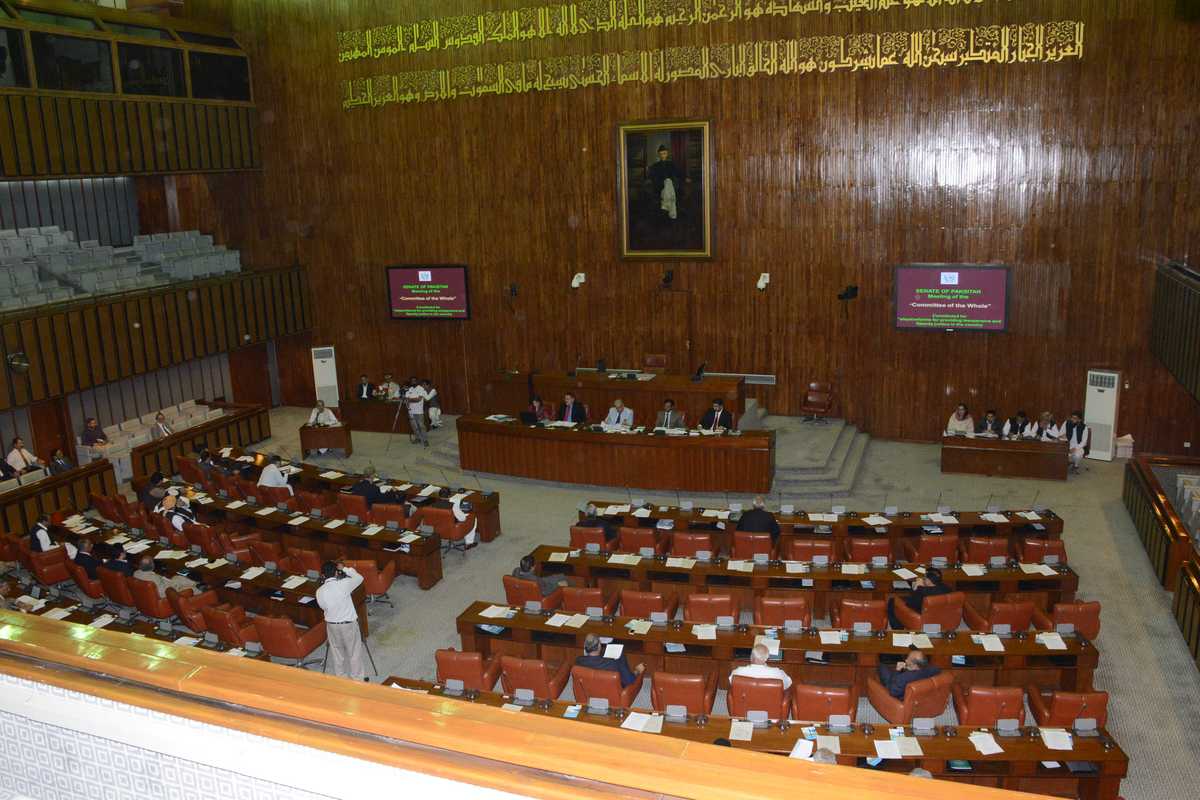Pakistan moves to bar dual nationality for civil servants
Senate panel backs bill banning dual nationality but debate continues over its scope and fairness

Javed Hussain
Correspondent
I have almost 20 years of experience in print, radio, and TV media. I started my career with "Daily Jang" after which I got the opportunity to work in FM 103, Radio Pakistan, News One, Ab Tak News, Dawn News TV, Dunya News, 92 News and regional channels Rohi TV, Apna Channel and Sach TV where I worked and gained experience in different areas of all three mediums. My journey from reporting to news anchor in these organisations was excellent. Now, I am working as a correspondent with Nukta in Islamabad, where I get the opportunity of in-depth journalism and storytelling while I am now covering parliamentary affairs, politics, and technology.

A file image of Pakistan Senate.
Shutterstock
Pakistan’s Senate Standing Committee on the Cabinet Secretariat has approved a bill barring civil servants from holding dual citizenship, advancing legislation that has drawn mixed reactions from lawmakers.
The bill, formally titled the “Civil Servants Amendment Bill 2024,” was introduced by Senator Dr Afnanullah of the ruling Pakistan Muslim League-Nawaz (PML-N) as a private member’s bill on September 9, 2024. After review, the committee passed the bill by a majority vote.
The amendment to Section 5 of the Civil Servants Act, 1973, would prohibit any individual holding foreign nationality from being appointed as a civil servant in Pakistan.
The bill also states that government employees who marry foreign nationals without prior government approval will be guilty of public servant misconduct.
The bill's statement of objectives notes that current appointment procedures for civil service positions are governed by the Civil Servants (Appointment, Promotion and Transfer) Rules, 1973. Rule 13 specifies that candidates must be Pakistani citizens, though the Establishment Division can grant exceptions. However, under the new amendment, this exemption would no longer apply.
During the committee session, Senator Aimal Wali Khan argued that dual citizenship restrictions should extend beyond civil servants. “The same law should apply to the judiciary, defense agencies, and intelligence agencies,” he said.
Senator Sadia Abbasi of the PML-N opposed the bill, contending that the matter should be left to the prime minister’s discretion. “The prime minister has yet to decide on this matter, and we should wait for his directive,” she said.
The debate also discussed the broader implications of dual nationality within the government. Senator Afnanullah questioned why the Citizenship Act, which allows dual nationality, does not apply to politicians. A Ministry of Law and Justice representative responded that barring dual citizenship for politicians would be discriminatory.
Officials from the Establishment Division briefed the committee, revealing that data collection on civil servants with foreign nationality is ongoing. So far, responses from 10 ministries and departments show that one official in the Cabinet Division, two in the Federal Board of Revenue (FBR), and 16 in Customs and Inland Revenue hold dual citizenship.
The issue of dual nationality among government employees was previously addressed in a 2018 Supreme Court decision, which instructed the federal government to formulate a policy on the matter. Following this directive, the prime minister at the time formed a committee under the Secretary of Communication, which submitted its recommendations on October 29, 2020. A subsequent three-member subcommittee reviewed these recommendations before submitting them to the Law and Justice Division.
In its October 31, 2024, meeting, the Committee of Secretaries considered the matter again and established another committee to formulate policy recommendations regarding dual citizenship in government service. The report was later forwarded to the Law and Justice Division for legal scrutiny.
The standing committee also approved other legislative measures, including the Special Technology Zone Authority Amendment Bill, which authorizes the prime minister to appoint authority members for a four-year term, and the Abandoned Property Amendment Bill.
The bill on civil servants’ dual citizenship will now proceed to the Senate for further deliberation.







Comments
See what people are discussing